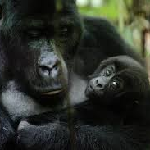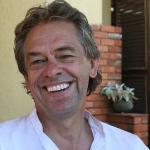
The Eyes of Virunga: From Poacher to Protector by Virunga Heroes
 Helio Laubenheimer Jun 18, 2014 09:42 |
Hi,
You state:
-The charcoal produced will still be used as it's diverted from the illegal trade to be used by DR Congo populations who have been displaced by war and given the retrieved charcoal for survival use in their refugee camps.
So you propose that charcoal is still produced from local native forests and instead of being sold illegally, used by displaced populations.Is that a correct?
Thanks
|
 Morey Bean Jun 18, 2014 02:46 | Proposal contributor
No. Charcoal needs to be produced from non-forest cellulosic sources. Production of biochar from non-forest fuel sources is very important.
As the rebels are displaced from the Virunga National Park, the illegal production of charcoal from trees in the Park should subside. Hence our efforts to bolster the ranks of the Park Rangers.
In the meantime, the confiscated charcoal is sorely needed by the displaced populations as an interim survival strategy.
Since I submitted this proposal I am in contact with Robert Williams, who has a much better handle on the dynamic of the economic ecosystem of biochar production. He works with the Park with a local (Congo) enterprise that produces biochar briquette making equipment for use by Congo entrepreneurs, using non-forest bi-products as a fuel source. Here is a feature about his enterprise: http://www.dailycamera.com/features/ci_14335408
I am hoping to engage Robert in this proposal.
|
 Helio Laubenheimer Jun 20, 2014 09:57 |
Hi moreybean,
Sounds good, very interesting initiative. Depending on the biochar production you could also use it as a soil enhancer that can hold carbon and boost food security.
Do you know aprox. how many hectares are annually logged in Virunga for illegal charcoal prodution.
Best regards
|
 Morey Bean Jun 20, 2014 09:56 | Proposal contributor
We have no idea the extent of the illegal charcoal production. Perhaps remote sensing / satellite surveillance can help.
|
 Paulo Borges De Brito Jun 20, 2014 01:45 |
You said that illegal activities will diverted. How will monitoring and enforcement rules will be developed?
Paulo
|
 Morey Bean Jul 26, 2014 08:40 | Proposal contributor
Hi Paulo,
Sorry for the delayed response. The monitoring and enforcement will be under the auspices of the Virunga National Park as implemented by its Rangers and administration.
|
 Climate Colab Aug 6, 2014 12:31 |
Really interesting idea, only partially developed. Needs a bit more organization than just three people - maybe they could get an NGO to be a sponsor. Also no budget, so can't support as is. But they should be able to develop a budget - they clearly know what they want to do. This is appealing and doable, just needs more work.
---
(1) It is a relatively complete list of items that are addressed in this presentation. It does not provide information about two options -- How much will emissions be reduced or sequestered vs. business as usual levels? And Related proposals.
(2) There is no information on the proposal costs although there is some description of the activities.
(3) It plans to use solar powered chargers to provide electricity. It is not very clear how it will be used to protect the rainforests from poachers and illegal charcoal producers.
|
 Morey Bean Aug 12, 2014 05:16 | Proposal contributor
Thanks very much for your support of our project! Your comments are wonderfully appropriate, and we're working on obtaining a fiscal sponsor as well as developing a project budget. We are closer to having a broadened advisory group that will help define emission sequestration and project mechanics.
We've made significant headway in collaborating with The Virunga Alliance via Robert Williams, a Virunga National Park executive who lives here in Boulder, Colorado. Robert and I have met and are working together to be ready for the impact of the widespread screening of the movie Virunga on Netflix. Although Virunga project support is paramount and of first priority, we are planning our first eco-trek for January, 2015 upon successful fundraising for both Virunga projects and for our first six week visit to the DR Congo.
Two other significant partnerships are being developed and will be announced upon the partners' public announcement of our common collaborative efforts.
Thank you again for your help in bolstering the prospects for success for The Eyes of Virunga.
|
 Climate Colab Sep 3, 2014 12:25 |
- Proposal for fund-raising through eco-tourism, and attention-raising through documentary filming, to support conservation projects in DRC's Virunga National Park. A capable team, working towards a worthy goal.
- I liked this proposal - it's clearly thought out, and has responsibilities and costs defined well. It's imaginative, and can be done.
- It has very good responses to the comments that were submitted earlier. All the questions are now properly addressed with additional information provided as well. Well done.
|
 Osero Shadrack Tengeya Sep 17, 2014 03:14 |
Hi Virunga Heroes and your friends, kindly consider voting for my proposal shown on this link.
https://www.climatecolab.org/web/guest/plans/-/plans/contestId/1300206/planId/1002
Thanks.
|
 Anne-marie Soulsby Sep 23, 2014 04:52 |
Hi Virunga Heroes,
Please consider voting for my proposal, https://www.climatecolab.org/web/guest/plans/-/plans/contestId/1300801/planId/1309001
Good luck with your entry!
Asante/Thank-you
@conserveaction
|
 Toy Bodbijl Sep 29, 2014 07:55 | Proposal contributor
I like the proposal and found it well-planned with benefit to both man & nature. The comments thus far have been positive and fair. In addition to what has been said before, the benefit to biodiversity could have been added, which was the first thought that stood out for me while reading the proposal.I see Virunga as an area where degradation has not been as intensive as other areas, so it has more to lose in the long run. By stepping in now, it can recover much faster. I recommend this project because it can ameliorate present impacts, serve as an eco-tourist destination (financial gain) and serve as an outdoor laboratory for further research (education for youth), and this is very exciting for me. I can virtually see myself teaching Life-Sciences and Environmental Education in this wonderful Park. Well done, Virunga Heroes!
|